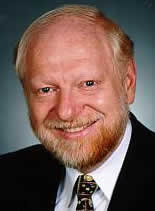Co-sponsored by the AIS section of the AAA and the UW CISA
Workshop Description and Objectives
Workshop Description and Objectives
The aim of this workshop is to bring together Accounting Information Systems (AIS) researchers, representatives from Statistics Canada, leading accounting firms, and accounting organizations to have a conversation on data value creation related challenges and research opportunities. We hope through the interaction to achieve the following objectives:
- Provide an opportunity for representatives from Stats Canada to share with us the highlights of their research, listen to the challenges and opportunities that managers in charge of data analytics projects face, and learn from representatives of accounting organizations about the regulatory implications.
- Provide an opportunity to researchers interested in these topics/ideas to start exploring the possibility of collaboration with practitioners on addressing these research questions.
- Convert these research topics/ideas into a call for papers for a special section of JIS on the topic of data value creation in order to expand our understanding of this growing area of activity.
Background:
Tom Davenport’s 2006 Harvard Business Review article on “Competing with Analytics” ushered in the use of data analytics for competitive advantage from the realm of innovators to mainstream adoption. Eric Brynjolfsson and his colleagues pointed out that obtaining value from IT enabled initiatives, such as data analytics, requires complementary investments in human capital, reengineered processes, databases, and development of IT capabilities. Baruch Lev argues that most of today’s firm value comes from investments in such intangible assets, but effective decision-making about creating and harvesting value from intangibles is hampered by the fact that these intangibles are typically not measured or shown in corporate reports.
Recent research activity by national and international agencies (e.g., BEA, IMF, Stats Canada, and World Bank) shows that data is not priced properly in our economy. Thus, although there is general recognition of the importance and value of data and the analytics that it can support, we do not have effective measures of data’s value either at the micro or macro levels which are needed for effective investments and policies. This workshop aims to help us move this issue forward among both practitioners and academics, by asking the following questions:
- How does data create value?
- Do we see it now? If so, where should you look to see it? If not, what should be our approach to measuring and reporting on the value of data?
Thursday February 4, 11:00 am - 2:00 pm (Eastern Time Canada and US)
|
11:00-11:10 |
Welcome by Efrim Boritz on behalf of UWCISA and JIS – Workshop introduction by Theo Stratopoulos |
|
11:10-11:55 |
First Panel – Presentations (45 minutes)
|
|
11:55-12:30 |
First Panel – Q&A (35 minutes) |
|
12:30-12:40 |
Break (10 minutes) |
|
12:40-13:40 |
Second Panel – Presentations (60 minutes)
|
|
13:40-14:00 |
Second Panel – Q&A (20 minutes) |
University of Waterloo Senior Co-Editors of the Journal of Information Systems

CPA Ontario Chair in Accounting
Executive Director, UW CISA
jeboritz@uwaterloo.ca

PricewaterhouseCoopers Chair of Information Systems
tstratopoulos@uwaterloo.ca
Industry Panel:
Our industry panel has four speakers representing national and international organizations: Stats Canada (Brenda Bugge), MatrixLinks/CPA Canada (Rob McLean), BEA (Dylan Rassier), and IMF (Jennifer Ribarsky). All of them have done extensive work on the valuation of data in national income accounts.
Brenda Bugge is an Assistant Director with Statistics Canada. Brenda is a graduate from Memorial University of Newfoundland and Labrador and has spent most of her professional career at Statistics Canada. Brenda has been compiling statistics to measure the economy for many years and currently, as Assistant Director, Brenda is evaluating and quantifying the economy throughout this challenging year. In 2019, Statistics Canada was the first national statistics office to estimate the Value of Data activities as a result of Brenda’s work on this important component of our economy. Brenda continues to collaborate with international organizations to promote initiatives in this area.
Rob McLean, MA, FCPA, FCA has experience in the private, public and research sectors as a strategy consulting partner with EY, executive director of the Ontario Premier’s Council, and executive director of the International Federation of Institutes for Advanced Study. Since the early 1990s, he has worked at the intersection of strategy, systemic change, intellectual capital, innovation and accounting as a consultant, researcher, inventor, and technologist. He is currently acting as Lead Consultant for CPA Canada's Value Creation workstream, helping to guide the CPA profession's transformation, which aims to place as much emphasis on foresight as accounting’s traditional emphasis on past transactions. He is the principal co-author of CPA Canada’s forthcoming publication "What is Your Data Worth: Insights for CPAs".
Dylan Rassier is Chief of National Accounts Research and Analysis at the U.S. Bureau of Economic Analysis. He leads a team of professional economists responsible for improvements in the U.S. national accounts, including aspects of the digital economy such as data as an asset, “free” internet products, and economic depreciation of high-tech goods. BEA webpage: Dylan Rassier | U.S. Bureau of Economic Analysis (BEA).
Jennifer Ribarsky has been a senior economist at the IMF since 2018. Currently, her work focuses on measuring globalization, digitalization and other aspects of statistical methodology for official statistics. Prior to joining the IMF, she was chief of the Sectoral National Accounts at the Organization for Economic Co-operation and Development where she worked on GDP and national accounts methodology. Jennifer has also worked at the U.S. Bureau of Economic Analysis where she was assistant Division Chief for the Balance of Payments Division. She holds a master’s degree in economics from Indiana University.
Academic Panel:
Our academic panel has three speakers with extensive research and publication record in the areas of business value of information technology and data analytics: Erik Brynjolfsson from Stanford University, Tom Davenport from Babson College, and Vern Richardson from University of Arkansas.
Erik Brynjolfsson is Director of the Digital Economy Lab at the Stanford Institute for Human-Centered AI (HAI) and a Research Associate at the National Bureau of Economic Research (NBER). He also holds appointments at the Stanford Institute for Economic Policy Research (SIEPR), the Stanford Graduate School of Business and the Stanford Department of Economics.
One of the most-cited authors on the economics of digitization, Brynjolfsson was among the first researchers to measure productivity contributions of IT and the complementary role of organizational capital and other intangibles. He has also done pioneering research on digital commerce, the long tail, bundling and pricing models, intangible assets and the effects of information technologies on business strategy, productivity and performance.
Brynjolfsson is the author of several books including, with co-author Andrew McAfee, The New York Times best-seller The Second Machine Age: Work, Progress and Prosperity in a Time of Brilliant Technologies (2014) and Machine, Platform, Crowd: Harnessing Our Digital Future (2017) as well as over 100 academic articles and five patents. He was the cofounder of the Inclusive Innovation Challenge, which recognizes organizations that use technology to benefit the many, not just the few. Brynjolfsson holds Bachelors and Masters degrees from Harvard University in applied mathematics and decision sciences and a PhD from MIT in managerial economics. His papers can be found at www.brynjolfsson.com/.
Tom Davenport is the President's Distinguished Professor of Information Technology and Management at Babson College, co-founder of the International Institute for Analytics, Fellow at the MIT Initiative on the Digital Economy, and Senior Advisor to Deloitte Analytics. He teaches analytics/big data in executive programs at Babson, Harvard Business School and School of Public Health, and MIT Sloan School.
Davenport pioneered the concept of competing on analytics with his best-selling 2006 Harvard Business Review article and 2007 book. His most recent book is The AI Advantage: How to Put the Artificial Intelligence Revolution to Work. He wrote or edited nineteen other books and over 200 articles for Harvard Business Review, Sloan Management Review, The Financial Times, and many other publications. He is a regular contributor to the Wall Street Journal and Forbes. He has been named one of the top 25 consultants by Consulting News, one of the 100 most influential people in the IT industry by Ziff-Davis, and one of the world's top fifty business school professors by Fortune magazine.
Vernon J. Richardson is Distinguished Professor of Accounting and the W. Glezen Chair in the Sam M. Walton College of Business at the University of Arkansas. He received his BA, MAcc, and MBA from Brigham Young University and a PhD in accounting from the University of Illinois at Urbana Champaign. He has taught at the University of Arkansas, Aarhus University, Baruch College, Brigham Young University, Chinese University of Hong Kong Shenzhen, Baruch College, University of Kansas, Xi’an Jiaotong Liverpool University and China Europe International Business School (Shanghai).
He was formerly an editor at the Accounting Review and is currently an editor at Accounting Horizons. He also served as associate editor at MIS Quarterly, Journal of Information Systems and the International Journal of Accounting Information Systems. He has published articles in the Accounting Review, Journal of Accounting and Economics, Contemporary Accounting Research, MIS Quarterly, Journal of Management Information Systems, Journal of Information Systems, Journal of Operations Management, and the Journal of Marketing.
References:
Solow, R. M. (1987, July 12). We’d better watch out. The New York Times, 36.
Statistics Canada. (2019). Measuring investment in data, databases and data science: Conceptual framework (No. 13-605–X; p. 16). Statistics Canada. https://www150.statcan.gc.ca/n1/pub/13-605-x/2019001/article/00008-eng.htm
Workshop Recording & Presentations:
The recording of this workshop held February 4, 2021 is only available to registrants and requires a password:
https://uwaterloo.webex.com/uwaterloo/lsr.php?RCID=d00577762cc6464e995c760d4fee650b
Presentation slides:
- Rob McLean
- Erik Brynjolfsson
- Tom Davenport
- Jennifer Ribarsky
- Dylan Rassier
- Brenda Bugge
- Tom Davenport
- Vern Richardson